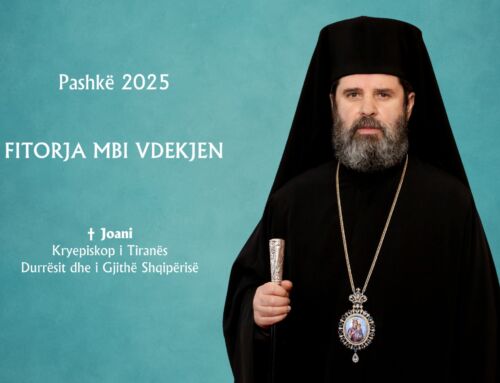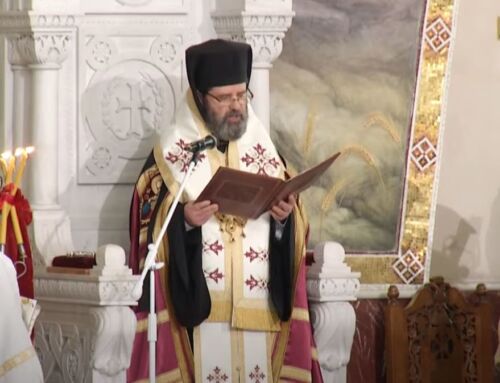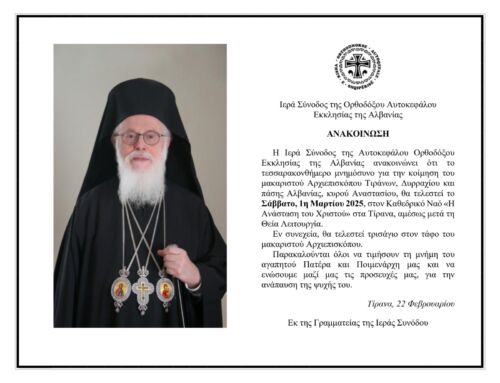On February 7, 1992 the teaching of the first courses for clergy began.
 During the past two decades there have not been any events that have impacted so much the miracle of the rebuilding of our Church after the atheistic winter, and at the same time demonstrated the visionary foresight of Archbishop Anastasios, as the opening of this school. When the churches were closed, with all the limitations and restrictions, our Church still had about 400 priests serving throughout the country. In 1991 only 20 priests remained alive, some aged, some unable to serve and others sick and at the end of their earthly journey (today only two of these remain alive). During the past two decades there have not been any events that have impacted so much the miracle of the rebuilding of our Church after the atheistic winter, and at the same time demonstrated the visionary foresight of Archbishop Anastasios, as the opening of this school. When the churches were closed, with all the limitations and restrictions, our Church still had about 400 priests serving throughout the country. In 1991 only 20 priests remained alive, some aged, some unable to serve and others sick and at the end of their earthly journey (today only two of these remain alive). At the time of the arrival in Albania of the Patriarchal Exarch, Anastasios, he found not only the ruins of the destroyed churches, but spiritual ruins that were even greater. Thus, besides the rebuilding of the temples there had to be reestablished also the Church in the soul of believers, but it could not be done without pastors, without clergy who would perform the services and lead people to faith. Some enthusiastic people went outside country to receive religious instruction, but the Archbishop was convinced that there could be no progress without creating conditions for those who wanted to enter this difficult, but blessed, road to have opportunities for education here, instead. Hence he set as a priority the opening of an Orthodox Seminary.
On the occasion of this anniversary, at the new Monastery of St. Vlash and on the grounds of the “The Resurrection of Christ Theological Academy” some activities were staged. They began with the Divine Liturgy in the Monastery church, and continued with the activities entitled “All things are Possible for God.” Present were Archbishop of Tirana, Durrës and All Albania Anastasios, Metropolitan of Korca, John, Bishop of Kruja Anthony, Bishop of Apollonia Nicholas and two younger members of the Holy Synod, the Bishop of Amantia Nathanaili and the Bishop of Bylisi Asti. Also present were clergymen, and former students from the first class of the school in 1992, and current students of the Academy.
The whole ceremony was accompanied with songs and hymns prepared by the choir of the Academy.
Thoma Dhima
Translated by Ana Meni Edited by Anastasia Pamela Barksdale |


